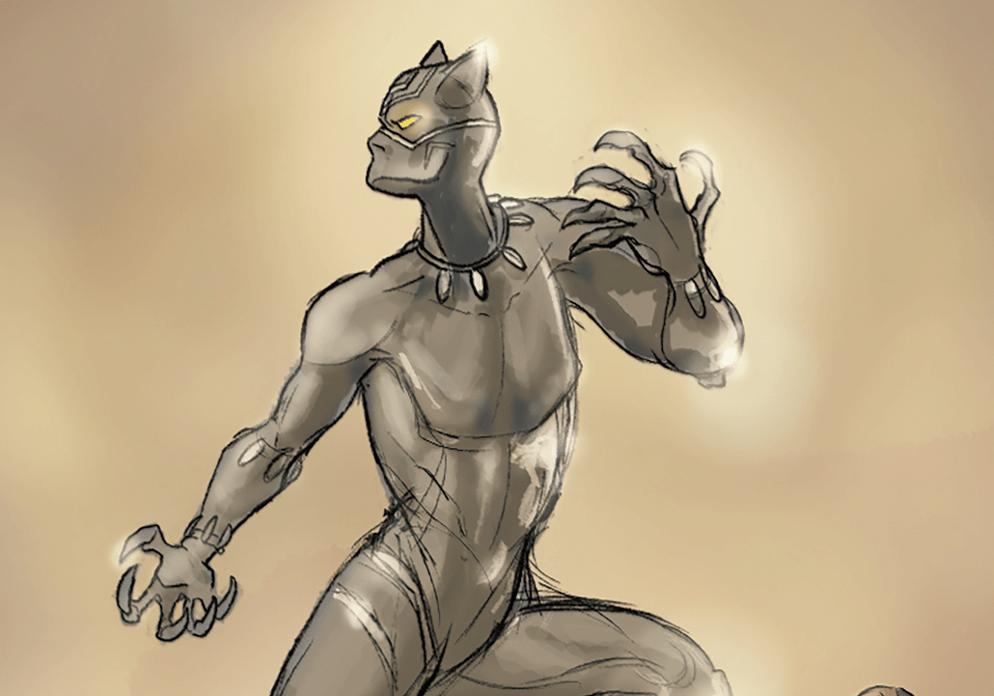Humphrey Owusu | Contributor
Featured image: Black Panther has garnered positive response from viewers, receiving praise for its portrayals of the black community and Wakanda. | Rowan Campbell
Black Panther is the upcoming film everybody’s talking about; the movie that’s sold out in every theatre in Toronto thus far; the movie that’s prompting people to dress up in African garb to showcase their pride. That’s Black Panther, the movie that is so deeply important.
Black Panther is so important that it makes the liberation from Transatlantic slavery and the Civil Rights Movement look like a fairytale. Malcolm X, who? Martin Luther King, where? Barack Obama, when? The release of Marvel’s Black Panther is now the most critical moment in black history.
All jokes aside, everyone is pumped to see this film. This movie is expected to top the box office this weekend, making $165 to $170 million in its opening weekend, and the lines will be wrapped around the corner with Marvel fans itching to watch it.
I’m also expecting to see black people thrilled about watching a black superhero in a prosperous black country. A couple weeks ago, the hashtag #WhatBlackPantherMeansToMe was trending on Twitter, and responses varied—from the portrayal of black people, to being represented on the big screen, to the portrayal of Wakanda. One user, @TerryTheWriter (NoDell Beckham), tweeted: “Finally, seeing BLACK people ruling their BLACK country on their BLACK continent, minding their BLACK business, thriving with their BLACK dollars, and BLACK resources. #WhatBlackPantherMeansToMe.”
That tweet alone summarizes Black Panther in a nutshell. Black Panther is the epitome of black nationalism, which is the same form of nationalism Marcus Garvey advocated for in the 1920s, which he referred to as Garveyism. Black nationalism revolves around the notion that black people are a nation who must seek to develop and maintain a black identity. Black nationalists support political, social, and economic empowerment for the black community. In short: black nationalists are pro-black, in every sense of the word.
In comparison to black nationalism, Wakanda is a racially homogenous nation of independence, self-preservation, and self-determination. T’Challa (Chadwick Boseman) is on guard for his Wakandan people, and does anything to fiercely protect Wakanda at all costs. One instance of this is when he infiltrated the Avengers, assessing their potential threat level to Wakanda; or when Black Panther kept up the facade of Wakanda as being a third-world country, so that outsiders would stay away from their wealth.
When watching the trailer, the protective nature of Wakanda is very much recognized. Not too many that have visited have made it out alive, except for their arch-nemesis Ulysses (Andy Serkis), who is seeking the vibranium that makes the country so technologically advanced.
Wakanda is the nation Garvey would have dreamed of. As Beckham puts it, Wakanda is a nation that thrives on its own efforts, with no help from anybody.
Noticing the admiration on social media shows that black nationalism is not a bad thing. There is nothing wrong with putting your people first or defending your nation, like T’Challa does.
Those watching Black Panther will be embracing black nationalism, whether they know it or not—and that’s nothing to be ashamed of.


